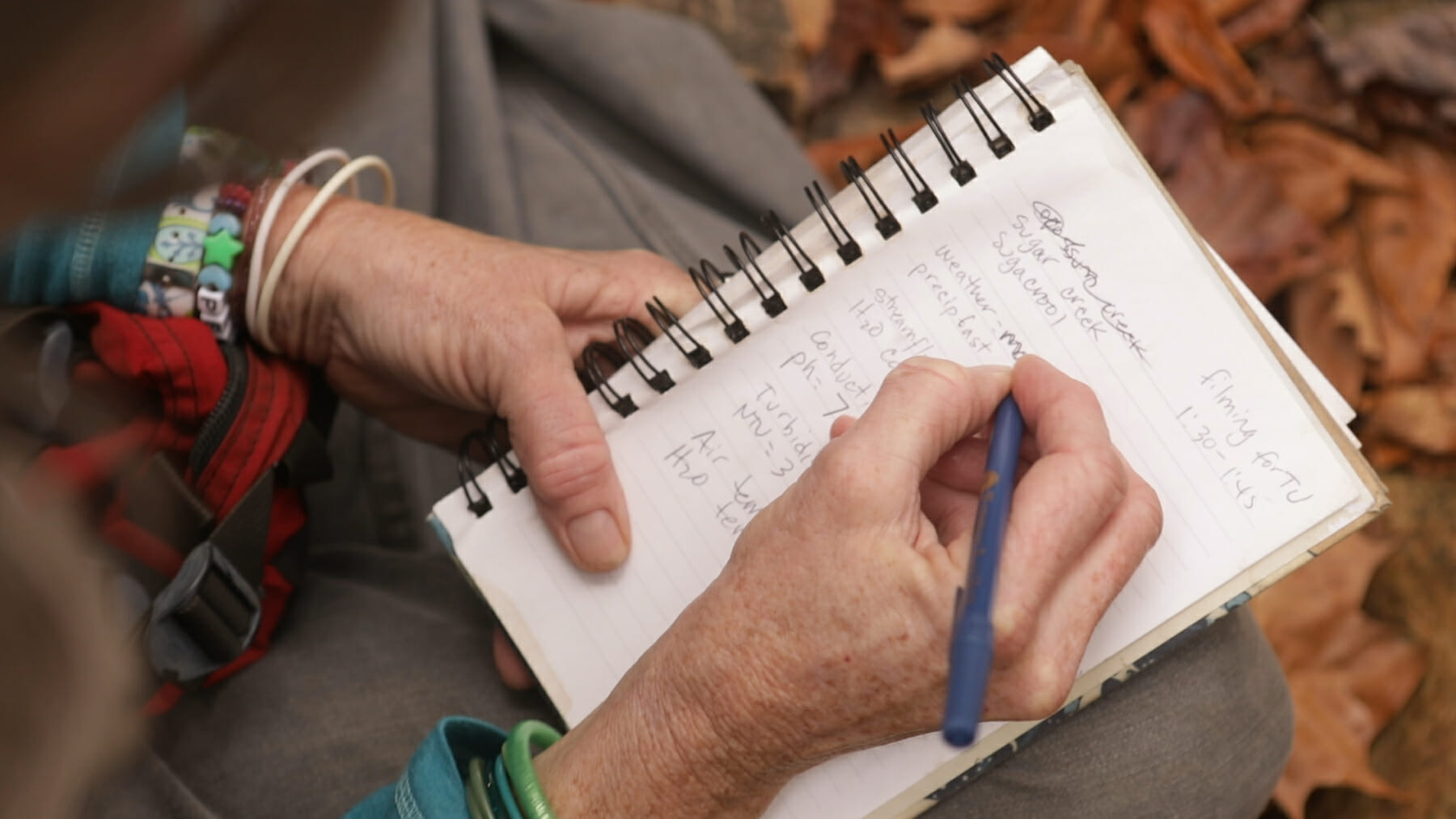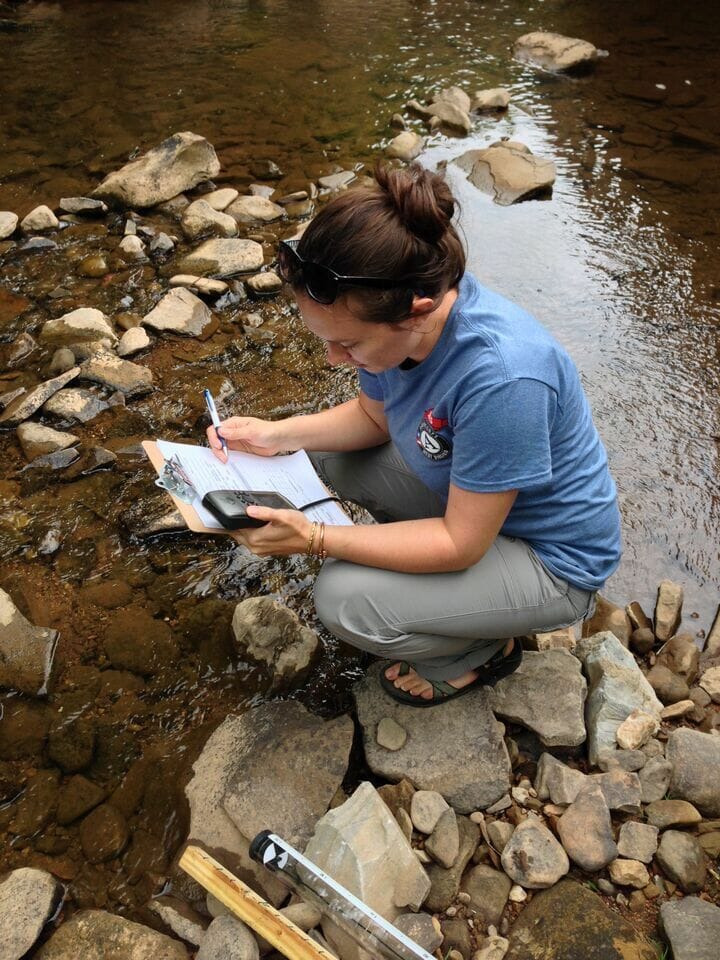By Jake Lemon
Trout Unlimited and the WV Rivers Coalition are hosting a series of webinar trainings to support volunteer citizen scientists to conduct visual assessments to identify potential pollution events associated with pipeline development.
This program will educate landowners, anglers, recreationists and concerned citizens on the erosion control best management practices used in pipeline development, specific examples of pollution incidents and failed erosion controls, and how to properly document these problems.
Pollution reports collected by our volunteers undergo an internal review and significant incidents are reported to the responsible regulatory agency.
Using these protocols, TU volunteers have identified and documented failing silt fences, missing erosion controls, slumping hillsides, poorly managed access roads and unsuccessful revegetation efforts along pipeline routes.
The first Virginia Pipeline Visual Assessment Webinar, hosted by Appalachian Voices, will be held on Tuesday March 13 from 7-8:30p.m. A West Virginia webinar, hosted by WV Rivers, will be held on Tuesday March 27 from 7-8:30pm. Access the registration page here, or for more information, please contact Jake Lemon, TU’s Eastern Angler Science Coordinator at jlemon@tu.org.

Trout Unlimited has worked with WV Rivers over the past two-plus years to develop volunteer water quality monitoring efforts in communities along the proposed paths of the Atlantic Coast, Mountain Valley and Mountaineer Express Pipelines.
TU and WV Rivers have worked with local and regional organizations such as Wild Virginia, the Indian Creek Watershed Association, the Ohio Valley Environmental Coalition to train, equip and provide technical guidance to citizens collecting baseline data on streams at risk from proposed pipeline development. To date, we’ve held 15 trainings for 233 volunteers.
Recently, the Pipeline Compliance Surveillance Initiative was formed to provide technical support to volunteer groups monitoring along the Atlantic Coast Pipeline. Through their programs, incident reports submitted by our citizen observers can initiate data collection efforts by professional scientists, aerial surveillance via unmanned and manned aircraft and will be shared via their CSI mapping system.
State and federal agencies do not have the capacity to comprehensively monitoring these large-scale earth disturbance projects. By training volunteers on what to look for and how to appropriately document pipeline related pollution issues, TU and WV Rivers are mobilizing a force that will help hold these projects to a high standard and provide increased protection to affected streams and rivers.
The Pipeline Visual Assessment Program was made possible by the Appalachian Stewardship Foundation and through a private donation.
Jake Lemon is Trout Unlimited’s eastern angler science program coordinator.



